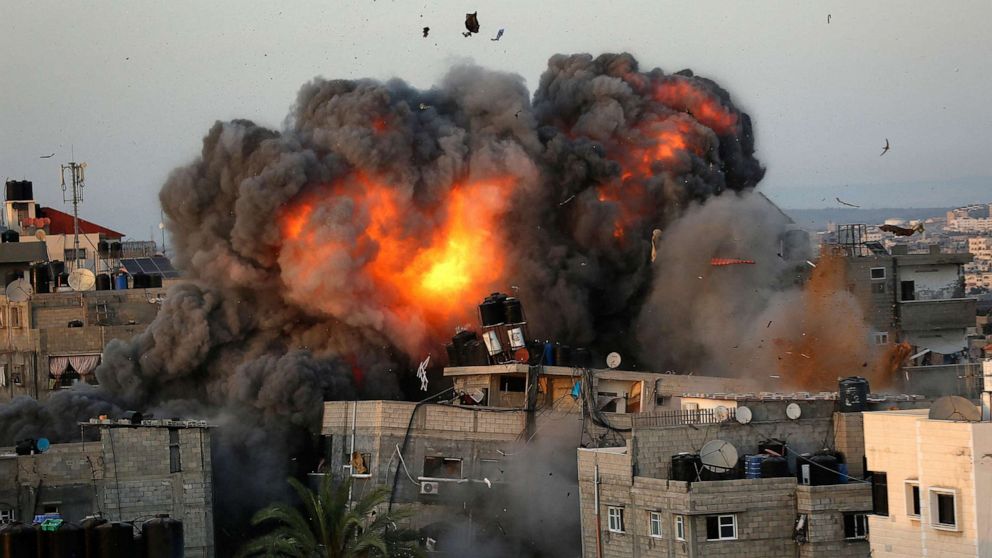In the same meeting on Tuesday, the GCC announced $100 million in emergency aid for the Gaza Strip.
The Secretary-General of the Gulf Cooperation Council maintained on Tuesday that oil cannot be used as a weapon amid mounting calls for an oil embargo on Western countries.
“The GCC works as a clear and honest partner as an oil exporter with the international community and we can’t use that as a weapon in any way possible,” Jasem Al-Budaiwi said when asked whether oil production should be reduced in response to Israel’s war on Gaza.
This came during the joint press conference of GCC foreign ministers meeting in Muscat centred around developments in the Israeli war on Gaza, that has so far claimed the lives of over 3,300 Palestinians, including more than 1,000 children.
In the same meeting, the GCC announced $100 million in emergency aid for the Gaza Strip.
Hashtags pushing for the oil embargo picked up momentum on X, formerly known as Twitter, where many urged the Arab countries to take a stance through an embargo.
#أوقفوا_النفط_عنهم and #اوقفو_تصدير_النفط spread across social media, calling on Arab countries to bring about change beyond mere condemnations and statements.
Many have recalled the historic oil embargo of October 1973.
In 1973, Arab oil-producing nations headed by Saudi Arabia imposed an oil embargo on Western countries that were backing Israel during its conflict with Egypt.
The countries affected by this embargo included the US, the United Kingdom, Canada, Japan, and the Netherlands.
This embargo was initiated as a response from oil-producing Arab countries to express their dissatisfaction with these countries’ backing of Israeli regime during the 1973 War.
A surge in oil prices occurred as a consequence, however, in the extended duration, the crisis spurred the emergence of fresh oil-producing regions beyond the Middle East, such as the North Sea and deepwater reserves, while also promoting the development of alternative energy sources.
Iranian Foreign Minister Hossein Amir-Abdollahian on Wednesday urged members of the Organisation of Islamic Cooperation (OIC) to impose a similar embargo and sanctions on Israel.
Amir-Abdollahian further urged the expulsion of ambassadors of the Israeli regime from countries that have relations with it.
He further stressed it is time for Muslim countries to sever their relations with Israel in protest against its crimes in Palestine.
Four sources within the Organisation of the Petroleum Exporting Countries (OPEC), which is responsible for a third of the world’s oil production, and comprising various Muslim nations, including Iran, indicated that the group had no imminent plans to take any measures or convene emergency meetings in response to Iran’s statements, Reuters said.
One of the sources said “we are not a political organisation.”
“The geopolitical environment is different compared to 50 years ago,” another OPEC source said.
Amir-Abdollahian went on to call for the formation of a team of Islamic lawyers to document potential war crimes committed by Israel in Gaza.
Earlier this month, disinformation experts exposed an account masquerading as a Qatari news source that spread false reports on an alleged Qatari threat to cut its gas supplies to the world if Israel continues to bomb the besieged Gaza Strip.
The ‘Qatar Affairs’ account shared a post on X, formerly known as Twitter alleging that “the State of Qatar threatened to stop gas supplies to the world if the bombing of Gaza does not stop.”







